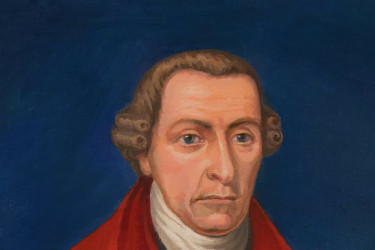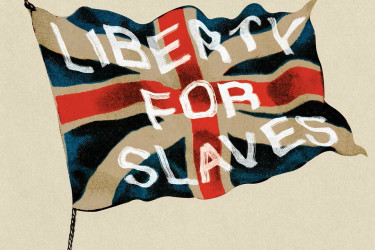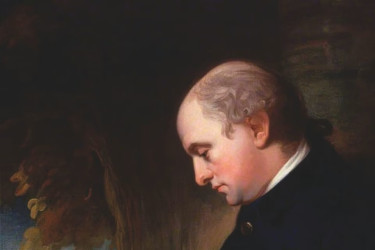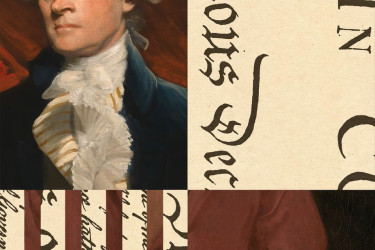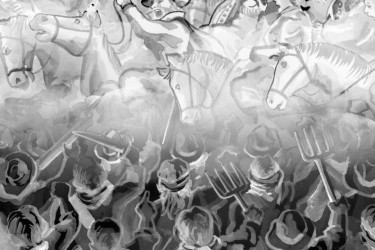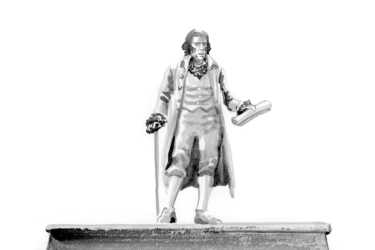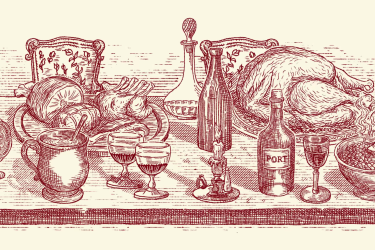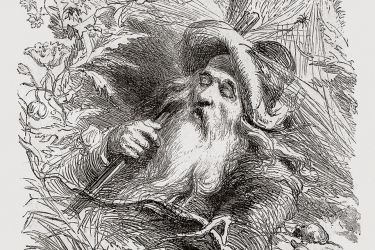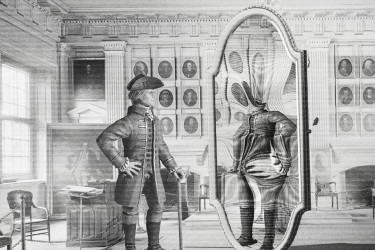Along with much of America, William waited to see on which political side his father would land. Franklin remained so tight-lipped that some wrote him off as a British spy. The reserve persisted for some time, though William had his suspicions, as would any close reader of that 196-page letter. More than anything, he wished that his father would retire from all public affairs. He warned him that if Franklin intended “to set the colonies in a flame, he would take care to run away by the light of it,” a friend later recalled.
When finally it came, the confrontation was loud. At William’s stately New Jersey home that summer, the two men quarreled so violently that they roused the neighbors. Franklin warned William that his position would soon prove uncomfortable, as William well knew. As early as June 1775, he anticipated arrest. His legal authority seemed at an end. His militia no longer reported to him. He begged London to observe strict secrecy with his correspondence, every shred of which could prove his undoing. Despite the dangers, he assured London that nothing would induce him “to swerve in the least from that loyalty and duty, which I owe His Majesty which has been the pride of my life to demonstrate upon all occasions.”
Not for the first time, a tussle broke out over the word patriotism. In America after 1775 an honest patriot subscribed to American independence. In the mind of the New Jersey royal governor, those individuals were “pretended patriots,” “desperate gamesters,” “banditti,” and delusional dupes. “A real patriot,” William informed his disgruntled legislature, “can seldom or ever speak popular language. A false one will never suffer himself to speak anything else.” Those lines figured in his last address as governor. As his father read drafts of the Declaration of Independence, William was carted off, to jeers and insults. He refused to answer questions, railed that the Continental Congress had usurped the King’s authority, and attempted escape. Under heavy guard, he reached Connecticut on July 4, 1776. He left behind a wife nearly out of her wits with fright.


